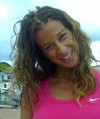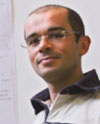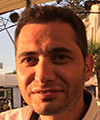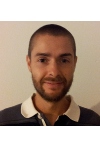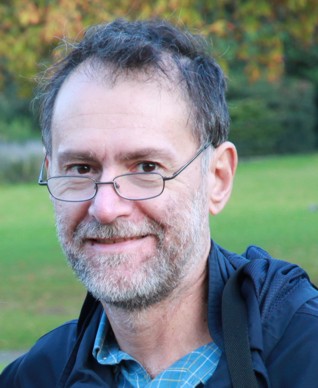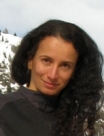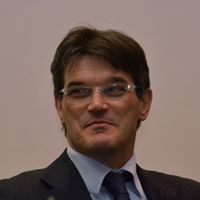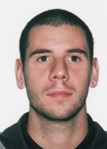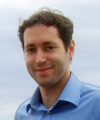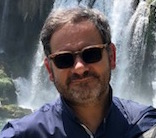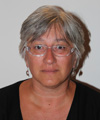Studiare
In questa sezione è possibile reperire le informazioni riguardanti l'organizzazione pratica del corso, lo svolgimento delle attività didattiche, le opportunità formative e i contatti utili durante tutto il percorso di studi, fino al conseguimento del titolo finale.
Calendario accademico
Il calendario accademico riporta le scadenze, gli adempimenti e i periodi rilevanti per la componente studentesca, personale docente e personale dell'Università. Sono inoltre indicate le festività e le chiusure ufficiali dell'Ateneo.
L’anno accademico inizia il 1° ottobre e termina il 30 settembre dell'anno successivo.
Calendario didattico
Il calendario didattico indica i periodi di svolgimento delle attività formative, di sessioni d'esami, di laurea e di chiusura per le festività.
| Periodo | Dal | Al |
|---|---|---|
| 1° semestre | 3-ott-2022 | 20-gen-2023 |
| 2° semestre | 1-mar-2023 | 27-mag-2023 |
| Sessione | Dal | Al |
|---|---|---|
| Appelli Sessione invernale | 23-gen-2023 | 24-feb-2023 |
| Appelli Sessione estiva | 5-giu-2023 | 7-lug-2023 |
| Appelli Sessione autunnale | 28-ago-2023 | 29-set-2023 |
| Appelli Sessione invernale straordinaria | 23-gen-2024 | 24-feb-2024 |
| Sessione | Dal | Al |
|---|---|---|
| Sessione estiva Esame di Laurea | 10-lug-2023 | 29-lug-2023 |
| Sessione autunnale Esame di Laurea | 23-ott-2023 | 20-nov-2023 |
| Sessione invernale straordinaria Esame di Laurea | 18-mar-2024 | 19-apr-2024 |
| Periodo | Dal | Al |
|---|---|---|
| Vacanze di Natale | 24-dic-2022 | 1-gen-2023 |
| Vacanze di Pasqua | 7-apr-2023 | 10-apr-2023 |
| Festa della Liberazione | 25-apr-2023 | 25-apr-2023 |
| Festa dei Lavoratori | 1-mag-2023 | 1-mag-2023 |
| Festa della Repubblica | 2-giu-2023 | 2-giu-2023 |
| Ognissanti | 1-nov-2023 | 1-nov-2023 |
| Festa dell'Immacolata | 8-dic-2023 | 8-dic-2023 |
| Descrizione | Periodo | Dal | Al |
|---|---|---|---|
| Periodo per i tirocini e le esercitazioni | annuale | 3-ott-2022 | 30-set-2023 |
| Descrizione | Periodo | Dal | Al |
|---|---|---|---|
| Corsi di lingua straniera - consultare calendario CLA | 3-ott-2022 | 30-set-2023 |
Calendario esami
Gli appelli d'esame sono gestiti dalla Unità Operativa Segreteria Corsi di Studio Scienze Motorie.
Per consultazione e iscrizione agli appelli d'esame visita il sistema ESSE3.
Per problemi inerenti allo smarrimento della password di accesso ai servizi on-line si prega di rivolgersi al supporto informatico della Scuola o al servizio recupero credenziali
Per dubbi o domande leggi le risposte alle domande più frequenti F.A.Q. Iscrizione Esami
Docenti
 manuela.basso@unitn.it
manuela.basso@unitn.it
 valentina.biino@univr.it
valentina.biino@univr.it
 francesco.biral@unitn.it
francesco.biral@unitn.it
 stefano.biressi@unitn.it
stefano.biressi@unitn.it
 paolo.bouquet@unitn.it
paolo.bouquet@unitn.it
 paolo.candio@unitn.it
paolo.candio@unitn.it
 andrea.monte@univr.it
andrea.monte@univr.it
 giandomenico.nollo@unitn.it
giandomenico.nollo@unitn.it
 anna.pedrinolla@univr.it
anna.pedrinolla@univr.it
 ptrab@tiscali.it
ptrab@tiscali.it
Piano Didattico
Il piano didattico è l'elenco degli insegnamenti e delle altre attività formative che devono essere sostenute nel corso della propria carriera universitaria.
Selezionare il piano didattico in base all'anno accademico di iscrizione.
1° Anno
| Insegnamenti | Crediti | TAF | SSD |
|---|
2° Anno Attivato nell'A.A. 2023/2024
| Insegnamenti | Crediti | TAF | SSD |
|---|
| Insegnamenti | Crediti | TAF | SSD |
|---|
| Insegnamenti | Crediti | TAF | SSD |
|---|
| Insegnamenti | Crediti | TAF | SSD |
|---|
Legenda | Tipo Attività Formativa (TAF)
TAF (Tipologia Attività Formativa) Tutti gli insegnamenti e le attività sono classificate in diversi tipi di attività formativa, indicati da una lettera.
Analisi del movimento negli sport di montagna (2022/2023)
Codice insegnamento
4S007457
Docente
Coordinatore
Crediti
6
Lingua di erogazione
Italiano
Settore Scientifico Disciplinare (SSD)
M-EDF/02 - METODI E DIDATTICHE DELLE ATTIVITÀ SPORTIVE
Periodo
2° semestre dal 1-mar-2023 al 27-mag-2023.
Sede
ROVERETO
Obiettivi di apprendimento
Lo scopo del corso è fornire una comprensione di base del movimento umano da un punto di vista cinematico e biomeccanico, con particolare attenzione alle caratteristiche e alle limitazioni imposte dall’ambiente outdoor e montano Alla fine del corso gli studenti dovrebbero essere in grado di comprendere quali siano i movimenti, le forze e l’impegno muscolare incontrati da un soggetto che pratica attività fisica, si allena o gareggia in ambiente outdoor in differenti contesti e terreni. Lo scopo del corso è fornire una comprensione di base del movimento umano da un punto di vista cinematico e biomeccanico, con particolare attenzione alle caratteristiche e alle limitazioni imposte dall’ambiente outdoor e montano Alla fine del corso gli studenti dovrebbero essere in grado di comprendere quali siano i movimenti, le forze e l’impegno muscolare incontrati da un soggetto che pratica attività fisica, si allena o gareggia in ambiente outdoor in differenti contesti e terreni. Lo scopo del corso è fornire una comprensione di base del movimento umano da un punto di vista cinematico e biomeccanico, con particolare attenzione alle caratteristiche e alle limitazioni imposte dall’ambiente outdoor e montano Alla fine del corso gli studenti dovrebbero essere in grado di comprendere quali siano i movimenti, le forze e l’impegno muscolare incontrati da un soggetto che pratica attività fisica, si allena o gareggia in ambiente outdoor in differenti contesti e terreni.
Prerequisiti e nozioni di base
Fondamenti di fisica meccanica classica (cinematica lineare ed angolare, forze, momenti di forza, lavoro, energia, potenza)
Fondamenti di biomeccanica del movimento umano
Elementi di fisiologia dell'esercizio
Programma
L'attività didattica sarà organizzata in lezioni frontali che introdurranno e affronteranno le conoscenze teoriche e in attività di laboratorio dedicate all'approfondimento attraverso misure sperimentali
Il programma includerà le seguenti tematiche
• movimento umano contro gravità, le caratteristiche della locomozione in salita e in discesa
• movimento umano su terreni sconnessi e differenti ambienti (es. superfici scivolose, cedevoli)
• movimento umano e le sue interazioni con calzature specifiche (effetto del peso, della rigidità e del cushoning)
• movimento umano con l'utilizzo di "passive locomotory tools" tipici dell'ambiente montano e outdoor, bastoncini da cammino, sci, biciclette etc
Le tematiche verranno affrontate facendo riferimento ad aspetti cinematici, dinamici, muscolari e metabolici. Si consiglia agli studenti un ripasso dei principali concetti base della cinematica e della biomeccanica del movimento umano.
Le esercitazioni prevedono l'analisi dati con l'applicazione Excel, viene richiesta la capacità di effettuare semplici operazioni sulle colonne, calcoli di valori medie e rappresentazioni di serie di dati in grafici.
Bibliografia
Modalità didattiche
IL corso è strutturato in lezioni frontali ed esercitazioni di laboratorio. Queste ultime sono suddivise in sessioni di raccolta dati speriementali ed esercitazione di elaborazione ed analisi dei dati.
Modalità di verifica dell'apprendimento
il voto sarà determinato sulla base di tre elementi di valutazione
° una relazione di poche pagine, consegnata una settimana prima della data dell'appello scritto, avente come tematica la rielaborazione misure raccolte nel corso delle esercitazioni di laboratorio. Gli studenti lavoreranno in gruppi di 3 persone. Le informazioni e le modalità operative del progetto verranno illustrate durante la prima lezione e la tematica assegnata nel corso delle lezioni di laboratorio.
° un esame scritto, composto per lo più da domande a risposta aperta
° un esame orale sui temi del corso e che potrà comprendere anche la revisione dell'esame scritto e della relazione consegnata
NOTA: Per l’ammissione alla prova orale è necessario un punteggio minimo di 18/30 della prova scritta
Criteri di valutazione
* relazione: -> verrà valutata per la correttezza delle informazioni riportate nell'introduzione (0-1), la correttezza dei passaggi seguiti per la fase di estrazione dei parametri previsti (0-5) la correttezza dei parametri estratti (0-3) l'adeguatezza della presentazione degli stessi (0-2)
* esame scritto: -> per ognuna delle domande verrà valutata la correttezza e la completezza di ogni risposta e attribuito un punteggio (0-5)
*esame orale: -> per ogni risposta data nell'esame orale (che consisterà di almeno 3 diverse domande) verrà attributo un punteggio (0-8) sulla base della correttezza e completezza delle risposte e verrà quindi calcolato un punteggio medio finale
Criteri di composizione del voto finale
Il voto finale deriverà da una media delle valutazioni secondo i seguenti pesi:
* 12% relazione
* 44% esame scritto
* 44% esame orale
Lingua dell'esame
Italiano (inglese su richiesta)
Tipologia di Attività formativa D e F
I Regolamenti dei corsi di laurea e di laurea magistrale di scienze motorie prevedono che gli studenti possano completare il proprio piano didattico, frequentando oltre agli insegnamenti obbligatori anche delle attività formative a scelta, per approfondire alcuni aspetti tematici o settori di interesse, in coerenza con il proprio percorso formativo.
Le attività formative a scelta di ambito D sono indicate all’interno del piano didattico del corso di studio prescelto, mentre le attività formative di ambito F sono individuate da una apposita commissione di docenti. Queste ultime attività possono essere conferenze, seminari, webinar, altro e vengono acquisite con una valutazione e non con un voto in trentesimi.
Link attivo alla pagina: Regole e Tabelle delle attività a scelta
COMPETENZE TRASVERSALI
| anni | Insegnamenti | TAF | Docente | |
|---|---|---|---|---|
| 1° | Antropometria | D |
Carlo Zancanaro
(Coordinatore)
|
|
| 1° | Biochimica dello sport | D |
Massimo Donadelli
(Coordinatore)
|
|
| 1° | Metodologia delle misure delle attivita' sportive | D |
Cantor Tarperi
(Coordinatore)
|
|
| 2° | Basi fisiologiche per la prescrizione dell'esercizio fisico - Physical bases of exercise prescription | D |
Jan Tom Boone
|
|
| 2° | Corso avanzato di nutrizione per lo sport | D |
Silvia Pogliaghi
(Coordinatore)
|
|
| 2° | Fisiologia dello sport - Sport physiology | D |
Silvia Pogliaghi
(Coordinatore)
|
|
| anni | Insegnamenti | TAF | Docente | |
|---|---|---|---|---|
| 1° | Farmaci e sport | D |
Giovanna Paolone
(Coordinatore)
|
|
| 1° | Medicina legale della sicurezza sociale | D |
Aldo Eliano Polettini
(Coordinatore)
|
|
| 1° | Ricerca applicata allo sport | D |
Anna Pedrinolla
(Coordinatore)
|
|
| 1° | Statistica applicata alle attivita' motorie | D |
Maria Elisabetta Zanolin
(Coordinatore)
|
|
| 2° | Biochimica clinica applicata allo sport | D |
Giuseppe Lippi
(Coordinatore)
|
|
| 1° 2° | Attivita' sportiva outdoor per la salute | D |
Anna Pedrinolla
(Coordinatore)
|
|
Prospettive
Avvisi degli insegnamenti e del corso di studio
Per la comunità studentesca
Se sei già iscritta/o a un corso di studio, puoi consultare tutti gli avvisi relativi al tuo corso di studi nella tua area riservata MyUnivr.
In questo portale potrai visualizzare informazioni, risorse e servizi utili che riguardano la tua carriera universitaria (libretto online, gestione della carriera Esse3, corsi e-learning, email istituzionale, modulistica di segreteria, procedure amministrative, ecc.).
Entra in MyUnivr con le tue credenziali GIA: solo così potrai ricevere notifica di tutti gli avvisi dei tuoi docenti e della tua segreteria via mail e a breve anche tramite l'app Univr.
Prova finale
L'esame finale si svolge nei periodi dell'anno definiti nel calendario didattico pubblicato nel sito del corso di studio.
Le informazioni relative all'organizzazione interna della sessione di laurea - giorni, orari, commissioni di esame - sono rese noti negli avvisi del corso di studio.
Per sostenere la discussione di laurea è necessario presentare apposita domanda on line e allegare l'elaborato di tesi una volta completato.
La prova finale consiste nella discussione di fronte a specifica commissione.di un elaborato scritto, originale con basi sperimentali inerenti a tematiche relative alla scienza e alla cultura del movimento nelle diverse aree in cui si declina l’ambito sportivo, compreso la promozione ed il mantenimento dello stato di salute e di educazione allo sport. L'elaborato viene predisposto dallo studente sotto la guida di un docente del Collegio Didattico, detto Relatore, e di eventuali correlatori.
I criteri di valutazione dell'elaborato di laurea e di attribuzione del punteggio sono descritti nelle Linee guida per lo studente.
I VIDEO TUTORIAL UTILI: sono disponibili nella intranet dello studente, in MyUnivr.
Elenco delle proposte di tesi e stage
Tutorato per gli studenti
à Tutorato di supporto durante il percorso di studio
Le studentesse e gli studenti iscritti ai corsi di studio di Scienze motorie possono incontrare e/o contattare:
-
tutor studenti il cui compito è facilitare l’inserimento nel contesto universitario, offrendo supporto nelle pratiche relative alla carriera (compilazione del piano didattico, organizzazione degli esami, progetto di tirocinio, Erasmus e altro). I tutor svolgono, inoltre, un ruolo di “raccordo” nella comunicazione con i docenti.
I Tutor ricevono presso la sede di via Casorati, palazzo ex ISEF, piano terra. Tel. 045 842 5135.
-
docenti tutor che svolgono attività di counseling durante lungo tutto il percorso di studio, per fornire assistenza nel superamento di eventuali difficoltà didattiche e per rendere gli studenti più consapevoli e partecipi nel percorso di formazione.
Per prendere appuntamento, inviare una e-mail all’attenzione del docente tutor, indicando il proprio nome e cognome, corso di studio e anno di iscrizione.
à Tutorato per il recupero delle conoscenze di base (OFA)
I Tutor didattici sono presenti durante i corsi di recupero delle conoscenze di base – OFA (saperi minimi) di Matematica, Fisica e Chimica, organizzati per gli iscritti al corso di Laurea in Scienze delle attività motorie e sportive.
Le lezioni di recupero sono indicate direttamente nell'orario delle lezioni del 1° anno. Per conoscere le date degli esami, consultare il Calendario Esami.
à Flessibilità per Studenti-Atleti
Per gli studenti impegnati in ambito sportivo - in possesso di meriti di particolare rilievo agonistico - l'Ateneo di Verona mette a disposizione dei tutor di supporto, il cui compito è affiancare lo studente nella predisposizione di un piano di lavoro e nella risoluzione di questioni pratiche e organizzative, al fine di conciliare la carriera universitaria con quella sportiva. Per L’assegnazione del tutor è necessario presentare annualmente domanda di partecipazione al programma dual career: informazioni.
Gestione carriere
Orario lezioni
L’orario delle lezioni comprende
Lezioni Frontali in aula
Esercitazioni e laboratori
Questi ultimi sono organizzati per gruppi dai singoli docenti responsabili dei corsi.
L'orario è pubblicato nel portale studenti
Modalità di frequenza
Vige l'obbligo di frequenza al 70% come specificato nel Regolamento di ogni singolo corso di laurea e laurea magistrale:
Ulteriori informazioni:
L'accesso alle pagine Moodle dei singoli insegnamenti è vincolato alla compilazione del piano di studi.
App Univr Lezioni, FAQ e guida all'utilizzo sono disponibili al seguente link: orario-lezioni-e-modalita-di-frequenza
Comunicati: Avvisi per studenti
Tirocini e stage
I corsi di Laurea e Laurea magistrale di Scienze motorie prevedono lo svolgimento di attività di tirocinio durante il percorso formativo allo scopo di sviluppare specifiche competenze pratiche ed operative nell’ambito proprio delle attività motorie e sportive.
Alcune sono organizzate in modo integrato con gli insegnamenti del piano didattico, altre si svolgono presso le strutture interne dell'Università, altre ancora presso enti esterni. Inoltre, è possibile svolgere attività di tirocinio finalizzate all'esame finale di laurea, anche presso sedi universitarie estere convenzionate.
Il numero dei CFU - crediti formativi universitari di tirocinio da acquisire è indicato nel piano didattico - 1 CFU di tirocinio equivale a 25 ore di attività.
Per informazioni e modulistica per studenti, docenti e aziende: Servizio Tirocini e Stage – Scienze motorie
ORARIO FRONT OFFICE: da lunedì a venerdì, orario: 10.00 - 13.00
accedere con le credenziali GIA personali dal seguente link Zoom
Esercitazioni Linguistiche CLA
Certificazione medica di idoneità
Riferimenti normativi principali: DM 24 aprile 2013 art. 3, GU 169 del 20-07-2013; Decreto del Ministro della Salute dell’8 agosto 2014 e s.m.i.
Per frequentare le attività dei corsi di Laurea e Laurea magistrale di Scienze motorie è obbligatorio presentare la certificazione medica di idoneità fisica per attività sportiva non agonistica. La certificazione è necessaria per accedere alle attività pratiche-esercitative e al tirocinio.
à COME OTTENERE LA CERTIFICAZIONE
La certificazione - riportante l’indicazione che è stato eseguito l’ECG a riposo - può essere rilasciata da:
- centri o servizi di medicina dello sport delle ASL (ora ATS) e delle aziende ospedaliere
- istituti della Federazione Medico Sportiva Italiana
- centri pubblici o privati autorizzati:
- dai medici di medicina generale di libera scelta, relativamente ai propri assistiti;
- dal medico specialista in medicina dello sport.
L’ECG a riposo deve essere ripetuto annualmente.
E’ ammesso anche il certificato medico di idoneità alla pratica sportiva agonistica, per chi ne fosse già in possesso.
à SCADENZA PER LA PRESENTAZIONE
La certificazione medica deve essere prodotta al momento dell'immatricolazione e, comunque, entro l’inizio delle lezioni alla Segreteria Corsi di Studio Scienze motorie. Spetta agli studenti rinnovarla annualmente alla scadenza - per ogni anno di iscrizione in corso o fuori corso. La Segreteria effettuerà periodicamente dei controlli sulla consegna dei certificati.
NOTA: Studenti immatricolati a seguito di SUBENTRO/RIPESCAGGIO/TRASFERIMENTO IN INGRESSO: se non è possibile rispettare la scadenza di presentazione del certificato sopra indicata, avvisare la Segreteria Corsi di Studio Scienze, scrivendo all’indirizzo certmed.scienzemotorie@ateneo.univr.it
à MODALITA’ DI CONSEGNA
La certificazione va inviata alla Segreteria Corsi di Studio Scienze motorie dalla propria e-mail istituzionale nome.cognome@studenti.univr.it all’indirizzo certmed.scienzemotorie@ateneo.univr.it.
Area riservata studenti
Competenze linguistiche
DOPO LA LAUREA TRIENNALE
Per proseguire gli studi in uno dei corsi di Laurea Magistrale dell'ambito delle Scienze motorie è necessario possedere competenze linguistiche almeno di livello B1 informatizzato (o superiore) specificamente di lingua inglese, poichè i corsi di studio di livello superiore prevedono nel proprio piano didattico la presenza di insegnamenti o di moduli impartiti dai docenti direttamente in inglese.
Inoltre, tali competenze costituiscono requisito di accesso indispensabile per poter partecipare alla prova di ìngresso oppure per iscriversi ad una laurea magistrale.
La conoscenza di altre lingue diverse dall'Inglese NON può venire riconosciuta come "requisito" utile per l'accesso ai corsi di laurea magistrale. Tuttavia, la certificazione posseduta potrà essere valutata da un'apposita Commissione di docenti ed eventualmente riconosciuta in termini di crediti (CFU) a scelta dello studente, presentando domanda al momento dell'immatricolazione.
Si invita a leggere con attenzione i bandi di concorso annuali per l'ammissione ai corsi di laurea magistrali per maggiori informazioni - consultare nel sito del corso di studio anche la sezione "Iscriversi".

 +39 0458425168
+39 0458425168

